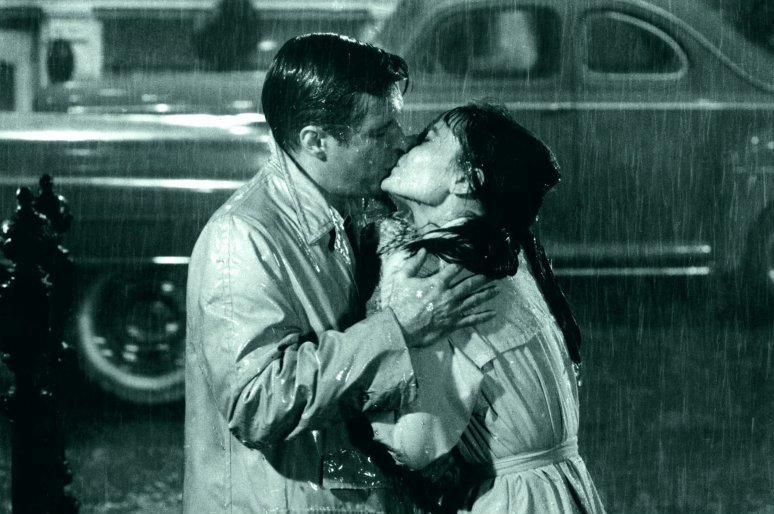Breakfast at Tiffany's
Main Actors
Audrey Hepburn

George Peppard

Patricia Neal


Breakfast at Tiffany's is a 1961 romantic comedy film starring Audrey Hepburn and George Peppard and Patricia Neal. "Breakfast at Tiffany's" is Truman Capote's best-loved work of fiction and arguably one of the finest American novellas. Set in Manhattan's Upper East Side, during the final years of World War II, it documents the story of a young writer's fascination with, and affection for, his charming and troubled neighbor, the unorthodox Holly Golightly.
Capote composed Breakfast at Tiffany's in the spring of 1958, shortly after the publication of the critically well-received Other Voices, Other Rooms, his first full-length novel and a commercial success. Capote culled inspiration for his new work from gossip, personal experience, and the lives of his eccentric New York friends. The title Breakfast at Tiffany's is drawn from an anecdote popular among Capote's social circle about an ignorant out-of-towner who, upon being asked which glamorous New York restaurant he would like to visit, answered, "Well, let's have breakfast at Tiffany's". The author's idea for Holly Golightly, who, in the first drafts of the manuscript, was named "Connie Gustafson", likely came from several sources. In his personal correspondence, Capote acknowledged that he intended his charismatic and unscrupulous heroine as a composite portrait of a number of Manhattan socialites with whom he enjoyed intimate friendships, including Babe Paley, Gloria Vanderbilt, Carol Marcus, and Oona O'Neill. Holly's story arc, in which she escapes an impoverished childhood in the rural South to reinvent herself as a New York sophisticate, resembles Capote's mother's life. In particular, Holly's real name - Lulamae - seems to directly reference Nina Capote's own discarded birth name, Lillie Mae. However, as his biographers and critics have suggested, Holly was perhaps also a projection of the author himself, a vehicle through which Capote explored his own struggles with social convention, depression, and his need for permanence and stability.
Capote's novella was adapted for the screen by scriptwriter George Axelrod, who sanitized the work for a mainstream audience by altering plot and character details. Most notably, the screenplay reshaped Capote's complex narrative about sexual ambiguity into a conventional heterosexual love story. Released in 1961, the film version of Breakfast at Tiffany's was a star vehicle for Audrey Hepburn, who at the age of 31, was anxious about her flagging career. Wildly successful with both the public and film critics, Breakfast at Tiffany's revived Hepburn's star power and, thanks to the innovative costuming by legendary designers Edith Head and Givenchy, made Holly Golightly an instant fashion icon. As Capote's biographer's notes, the film inspired a legion of New York women to claim that they were the true inspiration for Holly Golightly. One woman, named Bonnie Golightly, even brought an unsuccessful libel lawsuit against Capote. However, despite Hepburn's vast popularity as Holly, Capote maintained that she was poorly cast in the role, which he felt should have gone to Marilyn Monroe.
Hepburn's portrayal of Holly Golightly as the naive, eccentric cafe society girl is generally considered to be the actress' most memorable and identifiable role. She herself regarded it as one of her most challenging roles, since she was an introvert required to play an extrovert.Hepburn's performance of "Moon River" helped composer Henry Mancini and lyricist Johnny Mercer win an Oscar for Best Song. Despite her remarkable performance and the central theme of the love story between Holly and Paul (George Peppard), the film would in later years become notorious for the Asian character, I.Y. Yunioshi, played by the white actor Mickey Rooney in yellowface makeup, and become an example of Hollywood's history of stereotyping of that racial group.